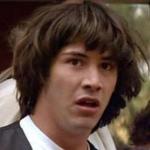"Source: Scientists data from Pew Research Center for the People & the Press survey, conducted in May and June 2009; for complete question wording, see survey topline. General public data from Pew Research Center survey conducted in July 2006; for complete question wording, see survey topline. Numbers may not sum to 100 due to rounding.
The recent survey of scientists tracks fairly closely with earlier polls that gauged scientists’ views on religion. The first of these was conducted in 1914 by Swiss-American psychologist James Leuba, who surveyed about 1,000 scientists in the United States to ask them about their views on God. Leuba found the scientific community equally divided, with 42% saying that they believed in a personal God and the same number saying they did not.
More than 80 years later, Edward Larson, a historian of science then teaching at the University of Georgia, recreated Leuba’s survey, asking the same number of scientists the exact same questions. To the surprise of many, Larson’s 1996 poll came up with similar results, finding that 40% of scientists believed in a personal God, while 45% said they did not. Other surveys of scientists have yielded roughly similar results.
Given their much lower levels of belief in God or a higher power, it is not surprising that the percentage of scientists who are unaffiliated with any religion is much higher than among the general public. Nearly half of all scientists in the 2009 Pew Research Center poll (48%) say they have no religious affiliation (meaning they describe themselves as atheist, agnostic or nothing in particular), compared with only 17% of the public. Thus, it follows that most faith traditions are represented in smaller numbers in the scientific community than in the public as a whole. For instance, the scientific community is far less Protestant (21%) and Catholic (10%) than the general public, which is 51% Protestant and 24% Catholic. And while evangelical Protestants make up more than a fourth of the general population (28%), they make up only a small slice (4%) of the scientific community. One notable exception is Jews, who make up a larger proportion of the scientific community (8%) than the general population (2%)."
https://www.pewforum.org/2009/11/05/scientists-and-belief/
I remember hearing about this back then. Was a surprise because the expectation was with science guiding our path, over years religious belief would decline, ultimately disappear among scientists.

 Caption this Meme
Caption this Meme 
 Caption this Meme
Caption this Meme